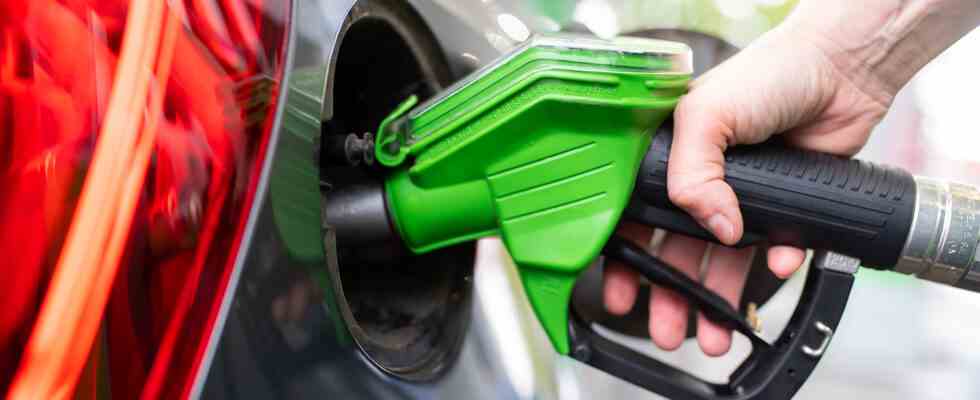Status: 07/13/2022 2:20 p.m
The slow decline in fuel prices continues. Nevertheless, the ADAC criticizes the prices for petrol and diesel as “still excessive”.
The prices at the gas stations continue to fall slowly. According to ADAC calculations, E10 premium petrol has become cheaper for the fifth week in a row. Yesterday, a liter cost 1.826 euros on a nationwide daily average, which was 1.7 cents less than a week earlier.
According to ADAC studies, diesel prices fell for the third week in a row to 1.963 euros on Tuesday – a drop of 2.6 cents. Nevertheless, the traffic club still considers the prices to be “greatly inflated”.
Taxes remain a major cost factor
The drivers of the current decline are likely to be oil prices, which have been trending lower for a few weeks due to economic concerns. While a barrel of North Sea Brent cost more than 120 US dollars a few weeks ago, the price is currently around 100 dollars. However, the weakness of the euro against the US currency is slowing down this effect.
Experience has shown that there is no absolute synchronization between the development of oil prices on the markets and German petrol station prices. Because even after the introduction of the tank discount, the federal government collects not only VAT and CO2 tax but also energy tax, the former mineral oil tax, of 33 cents per liter for diesel and 35.9 cents per liter for petrol.
Refineries are crucial
Another important factor that is often underestimated is the profit margins of the refineries that “crack” crude oil, breaking down its components. This is how it is processed into oil products such as gasoline and diesel. The oil multinationals Shell, BP and Total are among the largest refinery operators in Germany.
Experts pay attention to the so-called “crack spread” – ie the price difference between the refined oil products and the oil prices. And how high it was is shown by two examples from the recent past. The British oil company Shell reported just last week that its refining margin almost tripled from the first to the second quarter. It rose from $10.23 to $28.04 a barrel. That was the equivalent of just under 18 US cents per liter after around six cents in the first quarter.
The Austrian oil company OMV, which is mainly active in Germany in Bavaria, also put its margin from the refining business at $20.46 in the second quarter. A year earlier it was just $2.23 a barrel.
No crude oil is refueled, but petrol and diesel
But how does it actually come to such strong fluctuations in profit margins in oil processing? Motorists, as the largest consumers of oil products, do not need crude oil for their vehicles, but rather refined oil products such as diesel or gasoline.
If the demand for these increases faster than the refining capacity available in the short term, prices for gasoline and diesel rise faster than the underlying oil prices. Exactly this development has apparently taken place in recent months.

